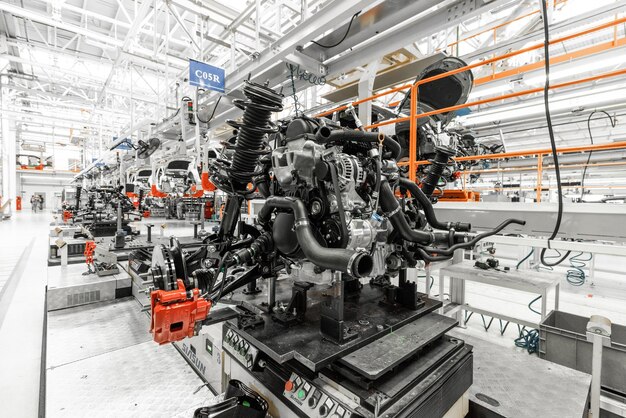South Korean Automakers Gear Up for a Grand Debut at the Geneva Motor Show

South Korean car manufacturers are gearing up to boost their global presence by unveiling new vehicles and concepts at the upcoming Geneva International Motor Show, as per IHS Automotive’s analysis.
Hyundai
Hyundai is set to introduce the next-generation i30 wagon at the show. This model is an extension of the five-door hatchback launched in 2016. The i30 wagon is 4,585mm long, 1,795mm wide, and 1,465mm tall, with a wheelbase of 2,650mm. It offers four engine options: a 1.0-litre T-GDI petrol engine generating 88kWh, a 1.4-litre petrol engine with 103kWh, and three variants of a 1.6-litre diesel engine producing 70, 80.5, and 97.7kWh. Details on the transmission are yet to be disclosed.
Kia
Kia plans to highlight two models: the Stinger GT sedan and the Morning hatchback (also known as the Picanto). The Stinger GT, first shown at the 2017 North American International Auto Show, draws inspiration from the Kia GT concept introduced at the 2011 Frankfurt Motor Show. It is designed by Peter Schreyer and offers two engines – a 2.0-litre turbocharged 4-cylinder or a 3.3-litre twin-turbo V6. Additionally, Kia plans to offer a 2.2-litre diesel engine and an electric powertrain for the Stinger, starting with a hybrid version followed by a fully electric version.
The new Morning hatchback features a longer wheelbase of 2,400mm, compared to the previous model. Its length remains unchanged at 3,595mm. The redesign includes LED headlights and tail-lights. Kia began accepting orders for the Morning in January 2017.
Ssangyong
Ssangyong will present the XAVL concept SUV, a seven-seater, at the Geneva show. This concept follows the XAV presented at the 2015 Frankfurt Motor Show and is inspired by the second-generation Korando model. The XAVL concept will be available with both petrol and diesel engines. Teaser images show a bold design with large bumpers and LED headlamps and tail lamps.
Market Outlook
South Korean auto manufacturers are working hard to expand their global market share. Hyundai and Kia, which rely on international markets for about 85% of their sales, face tough competition and economic challenges in emerging markets. To tackle this, they are focusing on launching new SUVs and vehicles with alternative powertrains this year. This strategy aims to strengthen their global footprint in a highly competitive automotive landscape.